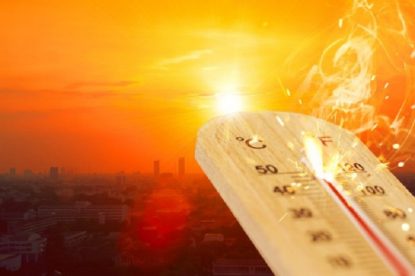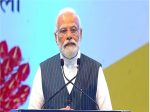
Languishing, burnout and stigma are all among the possible psychological impacts as Delta lingers in the community
PTI, Sep 8, 2021, 11:56 AM IST

Source: unsplash
As New Zealand remains under different levels of restriction, the psychological toll of the Delta outbreak may start to show, even as lockdown eases for everyone outside Auckland.
We know that stress and isolation associated with a lockdown can exacerbate underlying mental illnesses. But even for people with no existing concerns, the impact can show in more subtle ways, on a continuum between flourishing and languishing.
Imagine a t-shaped cross with symptoms of mental illness on the horizontal axis ranging from severe to none, and mental health on the vertical axis, ranging from high (flourishing) to low (languishing). Under this model, it’s quite possible to experience a mental illness but still be flourishing or to have no symptoms of a mental illness, yet be in a state where life feels dull and meaningless.
Increased levels of languishing were reported in the UK as extended lockdowns continued. New Zealanders, especially in Auckland, are at risk of experiencing a similar decline in their mental health as the groundhog days of an extended lockdown continue. Essential workers at risk of burnout For health workers, extended lockdowns come with a risk of professional burnout. Health Minister Andrew Little recently noted the high levels of stress experienced by nurses and doctors as they continue to provide care in trying circumstances.
The World Health Organization defines burnout as mental and physical exhaustion, feelings of cynicism and detachment from work, and a loss of productivity.
Prior to lockdown, nurses were on the verge of strike action, spurred on by high levels of reported burnout. The ongoing demand due to COVID-19 is unlikely to alleviate this.
Recent media comments regarding the well-being of Prime Minister Jacinda Ardern and Director-General of Health Ashley Bloomfield remind us that public servants are not immune either. Nor are essential workers such as truck drivers and supermarket workers. The latter in particular are at increased risk because of abuse they suffer from irritated shoppers and the shock linked to the recent supermarket terror attack.
Vaccination may ease anxiety As more people become fully vaccinated, people’s perception of the threat linked to an outbreak is likely to diminish. So, too, are our levels of anxiety, if the overseas experience is anything to go by.
This shift in the public mindset is logical and would signal a step towards us learning to live with COVID-19 in the same way perhaps as we have learned to live with other diseases. But experience to date suggests this transition is likely to have some ups and downs, with the ongoing potential emergence of new COVID-19 variants.
As vaccination rates rise, there is also a risk that media and the public begin to stigmatize identifiable groups who haven’t been vaccinated, blaming them for the spread of the virus and a loss of liberty. New Zealand had a taste of this recently when one cluster of the Delta outbreak was linked to a Samoan church, triggering online racist comments blaming them for the lockdown.
These types of comments increase the suffering of those already affected by the virus. They also overlook the evidence for substantial inequities in access to healthcare.
But languishing, burnout, and stigmatization are not inevitable consequences of an ongoing lockdown. Noticing changes in your own mental health is the first step to preventing a slide into languishing. Sir Mason Durie’s Te Whare Tapa Wha model is an excellent framework to guide this self-reflection. It provides a holistic model of well-being covering mental, physical, social, and spiritual domains.
To help combat burnout, a simple step we can all take is to show appreciation to essential workers. In 2020, public displays of support for healthcare workers were widespread in other parts of the world but less common in New Zealand.
Now is the time to thank our supermarket workers, truck drivers, public servants, doctors, and nurses who continue to serve us. Demonstrating that these workers are valued can help buffer against professional burnout as they feel more engaged and satisfied with their work.
Understanding more about disparities in our health system — and reminding ourselves that COVID-19, not specific groups of people, is the problem — is another step towards reducing stigma. Taking these small steps can help all of us flourish, regardless of what the virus throws at us.
Udayavani is now on Telegram. Click here to join our channel and stay updated with the latest news.
Top News
Related Articles More

Father’s diet can affect anxiety in sons, metabolism in daughters: Study in mice finds

Low back pain, depression, headaches main causes of poor health: Study

Surgical options for Parkinson’s disease

Breast cancer to cause a million deaths a year by 2040: Lancet commission

Will to resist temptations, achieve goals more trustworthy than using apps, study finds
MUST WATCH
Latest Additions

Intense heat wave in eastern states spreads to south India

Sexual harassment case against ex-WFI chief: Court to pass order on closure report on May 20

Modi is ‘Vish Guru’, never respected ‘magalsutra’: Jairam Ramesh

TCS World 10K: New starting point, meticulous arrangements in place

Congress complains to EC, alleges ‘misinformation’ by BJP about manifesto
























